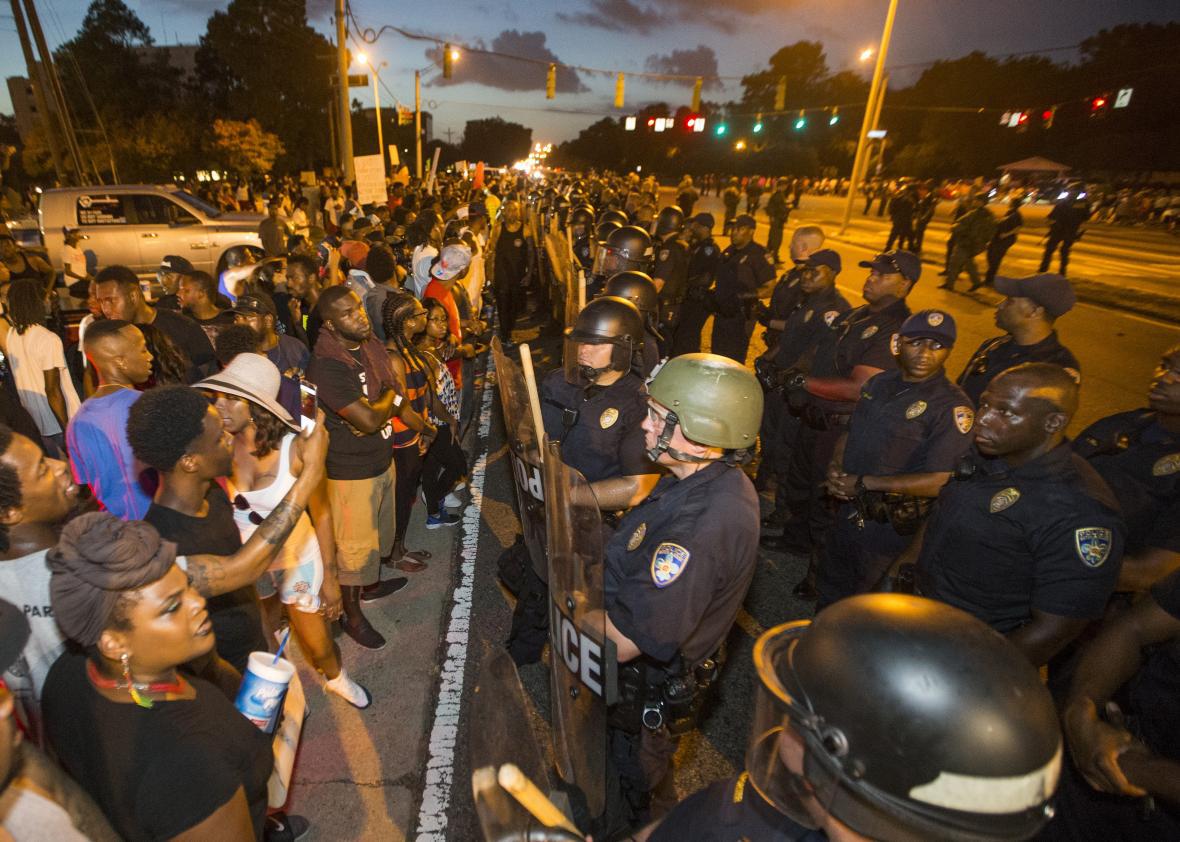On Friday, the Bahamas’ Ministry of Foreign Affairs and Immigration warned the nation’s citizens, in “particular young males … to exercise extreme caution in affected cities in their interactions with the police.” This travel advisory, which was written up on Slate and elsewhere, was mostly taken as another head-in-hands sign of how dangerous the U.S. has become for black people. Of course, the killings of Alton Sterling and Philando Castile are just the latest horrific incidents in what has become a blight on America. But the Bahamian government’s warning should not be interpreted as another data point in America’s shame so much as a statistical misinterpretation of actual danger. In fact, on average, a Bahamian who leaves his country to travel to the United States would decrease his chances of being murdered.
According to State Department statistics, the Bahamas, a country with a population of slightly less than 400,000, saw 149 murders last year. This murder rate of roughly 38 per 100,000 residents is comparable to the deadliest three or four American cities. It is approximately 10 times the murder rate of New York City and of the United States as a whole. It is also four times the homicide rate of Ferguson, Missouri, which Donald Trump recently (and extremely incorrectly) identified as “among the most dangerous [places] in the world.”
For what it’s worth, the travel advisory goes both ways. The U.S. State Department rates the “criminal threat level” for the Bahamas’ New Providence Island as “critical,” noting that “[a]rmed robbery and sexual assault are major criminal threats facing U.S. citizens in New Providence.” If you want to compare the Bahamas’ overall murder rate with the chances a black man has of being killed by a police officer in the United States, the Caribbean nation looks even more dangerous.
The two best databases of police killings are, shamefully, not kept by the U.S. government, but thankfully the Guardian and Washington Post have done great work in this field. Their numbers differ slightly, but the Guardian recorded 294 black men killed by police in 2015, the Post 248. The Census Bureau estimates there were 22.2 million black men in the U.S. in 2015, meaning the chances of any Bahamian being murdered in the Bahamas is roughly 30 times the chance of a black man being killed by a policeman in the U.S.
There are a number of caveats to make here. The Bahamas’ travel advisory doesn’t say explicitly that the nation’s citizens should fear getting killed in the United States; if it’s meant to warn Bahamians about the risk of getting hassled by American cops, then that’s more reasonable. Next, I was unable to find statistics on police killings in the Bahamas, which would allow for an apples-to-apples comparison. On the other hand, it’s worth noting that many police killings are indeed justified, and not just by the very loose definitions local prosecutors sometimes employ. A nod should also be given to the fact that the Bahamas warning is, to some degree, simply common sense. Who would argue against advising young men “to exercise extreme caution in affected cities in their interactions with the police”?
But just as warnings of “stranger danger” or advice to look out for domestic terrorists have some degree of common sense, they also greatly exaggerate threats and to some degree distract us from more acute problems. Therefore, if we want to be accurate, statistical, and factual, it should be noted that Bahamians are not imperiling their safety by traveling to the U.S. They’re probably enhancing it, however minutely.
